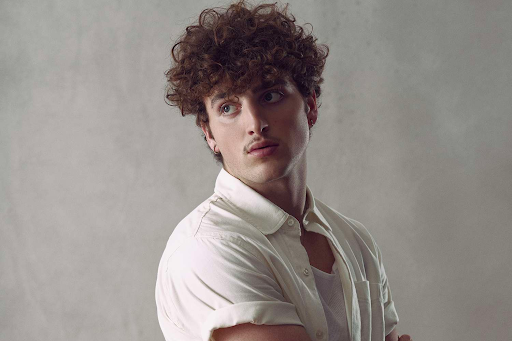
To say I was surprised when I walked into RDA and caught sight of around 40 calendars and 30 bookmarks displaying the face of Benson Boone, would be an understatement. However, as marketing strategies go, this was quite effective. I immediately rushed to Spotify, where I listened to Boone’s latest hits, including “Beautiful Things”. Due to algorithms (and the likely selling of all my data), his music began showing up on my Spotify recommendations and my social media feed.
Boone, a 21-year-old artist from Washington, is an example of the relatively recent phenomenon of getting TikTok famous [1]. Initially hating the platform, but eventually downloading it, Boone started posting what he calls, “random dumb videos”, which began to blow up. A few months later, he finally decided to post a video of him singing. The video received 5 million views overnight, jumpstarting his music career, and he now boasts three appearances on the Official UK Singles Chart [2, 3]. He has over 4 million TikTok followers and his most recent song, “Beautiful Things” is his first ever top-ten single [1]. Leading up to its release, he built up buzz on TikTok and Instagram by teasing 15-second clips of the song [3].
Due to his popularity on TikTok, Boone was also invited to audition for American Idol, where he reached the top 24, and was told by Katy Perry that he could win the entire show. Boone ultimately dropped out since he was unsure about whether he wanted to make music for the rest of his life. After stepping away from the show, he realized that he did want to write music, and hasn’t looked back since then [4].
Dan Reynolds from the band Imagine Dragons then discovered Boone due to his social media following, and signed Boone to his music label Night Street Labels [4]. Now, Boone has over 30 million monthly listeners on Spotify.
Boone represents what analysts at Vox termed the “TikTok to Spotify pipeline”, a representation of how artists get their start on TikTok, referred to as a “machine gun shooting out viral songs”, and simultaneously begin growing exponentially on Spotify. When a song blows up on TikTok and is released, it gets playlisted on tracks such as “New Music Friday” (which has over 4 million followers) or the “Global Viral 50”, which then leads to artists gaining monthly streams, even from people who may not have heard them on TikTok [6]. In fact, a study from MRC Data found that due to viral trends, 67% of TikTok’s users are more likely to find songs on streaming platforms after hearing them on TikTok [5].
As a result, there are now bidding wars over viral songs. Typically, when an artist goes viral, label companies will give them a big advance in return for full ownership of their song. The label keeps 85% of the royalties, and the artist will not gain any profit until they first pay back the advance. However now, artists are gaining more and more leverage. Due to their virality, many labels become interested in them, and thus are more lenient, offering previously unheard-of 50-50 splits in royalties and leading to improved conditions for new artists [6]. TikTok has also benefited many small creators, since the app’s users are exposed to hundreds of videos each day, and not every one of their recommendations is those from highly-liked videos, meaning that now, more and more artists have a chance [7, 8]. Getting TikTok famous also requires much less money than having to first go to a professional recording studio and release songs — now, people film songs from their bedrooms.
However, some claim that this is ruining music as a result. Rather than making songs for their meaning, artists now craft songs solely for TikTok trends, which means that they become much less natural [8, 9]. Songs no longer have to be lyrically intelligent or cohesive, rather they just need a 15-second repetitive chorus that sounds good to users and could be danced to. This ultimately homogenizes music to be centered around the algorithm rather than being a creative outlet [8]. And, for songs that do have a larger meaning, video trends can completely ruin their meaning and the gift of an album [9]. Audiences, as seen with artists such as Steve Lacy, and his hits “Bad Habit” and “Dark Red” do not even know the lyrics of songs, rather they know them for the 5 seconds featured in a TikTok trend [10].
Moreover, there is an immense amount of pressure for artists to become full-time content creators in addition to being actual musicians. Artists such as Halsey expressed frustration at having to constantly make TIkToks and balance promotion with touring, writing, and recording music [5].
Ultimately, while becoming TikTok famous certainly helps artists such as Boone rise to popularity and begin a musical career, it also threatens the music world, creating uncertainty around what it will become.
[1] https://www.officialcharts.com/chart-news/benson-boone-who-facts-beautiful-things/
[3] https://www.billboard.com/music/chart-beat/benson-boone-eyes-uk-top-10-beautiful-things-1235599912/
[5] https://www.businessinsider.com/how-tiktok-is-changing-music-industry
[6] https://www.youtube.com/watch?v=S1m-KgEpoow
[9]https://thepolypost.com/opinion/2023/01/31/tiktok-ruins-music/
[10]https://lasallefalconer.com/2023/01/has-tiktok-ruined-music/
